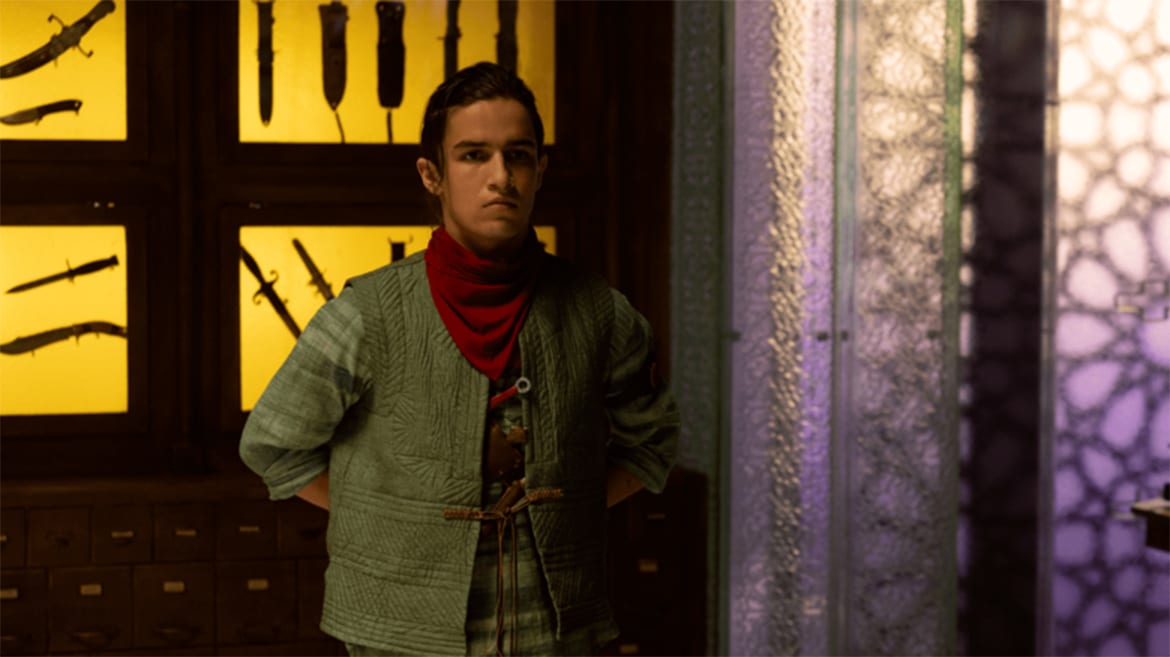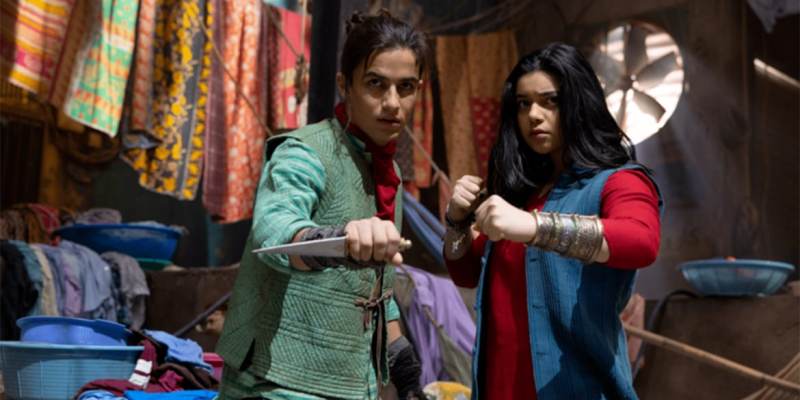This discussion and review contains spoilers for Ms. Marvel episode 4, “Seeing Red,” on Disney+.
Throughout its first three episodes, part of the appeal of Ms. Marvel on Disney+ has been its incredibly refreshing depiction of the everyday Pakistani-American life of the Khan family in Jersey City. From AvengersCon and the trials and tribulations of high school, to the weekly prayer services and Eid celebrations, the series has done an excellent job of creating a world for Kamala that feels genuinely lived in. And despite some worries that broadening the scope of Ms. Marvel could take away from this feeling of intimacy, “Seeing Red” maintains the show’s fantastic tone and sense of place, even in the midst of a trip halfway around the world to Pakistan.
I really love how this series is built around Kamala searching for a sense of purpose and identity in the world, both in terms of the origins of her newfound superpowers and also from being a teenage girl who oftentimes feels too brown for America, but too white in Pakistan. Small details, like Kamala not being able to handle spicy food until she finally comes around to the biryani out of a bag that she shares with her new pals, add so much texture to the character and this world. Iman Vellani’s immediate warmth and charm continue to be one of the standout surprises of not just the recent Marvel Cinematic Universe, but television as a whole in 2022.
Again, Vellani’s performance is only heightened thanks to the strength of those closest to her. The non-powered supporting cast in superhero stories can often feel disposable and superfluous, but it’s a testament to Ms Marvel’s deep roster that the trip to Pakistan made me miss the folks we left behind in Jersey, like Kamala’s father and brother, as well as her pals Bruno and Nakia.

Thankfully, “Seeing Red” takes the time to shine its spotlight on her mother Muneeba and grandmother Sana. I loved the quiet moments spent between the three generations of the family. As Kamala searches for her own identity, her grandmother shares her own wisdom, saying, “Even at my age, I’m still trying to figure out who I am. My passport is Pakistani, my roots are in India, and in-between all of this, there is a border marked with blood and pain.” It’s great seeing the parallels between both sets of generational relationships.
I’m once again impressed at the show’s ability to exist almost entirely outside of the machinations of the greater MCU. Aside from off-handed remarks about how Thor could ostensibly be considered a Djinn and some cute Ant-Man graffiti, Ms. Marvel is able to tell its own story without the weight of a decade-plus of world-building on its shoulders. Obviously this is going to change in next year’s The Marvels, which will have Kamala collide with Captain Marvel and Monica Rambeau, but for now, let’s just appreciate how singular this story feels.
The only major hiccup in Ms. Marvel, and one that seems to plague so much of the MCU as a whole, is its mediocre villains. Carrying over from their introduction in episode 3, the Clandestines lack any sense of identity, purpose, and depth as the antagonists to Kamala and company. For every Killmonger, Loki, and Xu Wenwu, it seems like we get a dozen disposable baddies like these across the MCU. I was underwhelmed by their attack on Kamala’s brother’s wedding last week, and I was similarly bored by their ability to teleport from the clutches of Damage Control to Pakistan in seemingly no time at all. There wasn’t anything necessarily bad about the chase through the streets of Karachi this week, but it felt like something I had seen a thousand times before and just took oxygen away from everything that the series does so well.
Despite not being all that invested in the action, I loved where episode 4 of Ms. Marvel leaves us at the end. In the midst of the battle, Kamala’s bangle is struck, seemingly transporting her back in time to the partition of India in the late ‘40s. I’m curious to see how the show deals with this kind of time travel — my money’s on Kamala being responsible for the “trail of stars” that allows her grandmother to safely reunite with her family, creating a good ol’ fashion bootstrap time paradox.
We’re nearing the final act of this six-part series, and as it currently stands, Ms. Marvel is right up there with Loki as my favorite stories of Phase 4 that the MCU has delivered so far, though I’m hoping that Thor: Love and Thunder can join them soon. Even with my gripes about the lackluster villains aside, the charming cast, confident storytelling, and willingness to let us soak in the wonderful non-superhero moments make the series feel wholly unique amongst its Atlanta backlot brethren.
